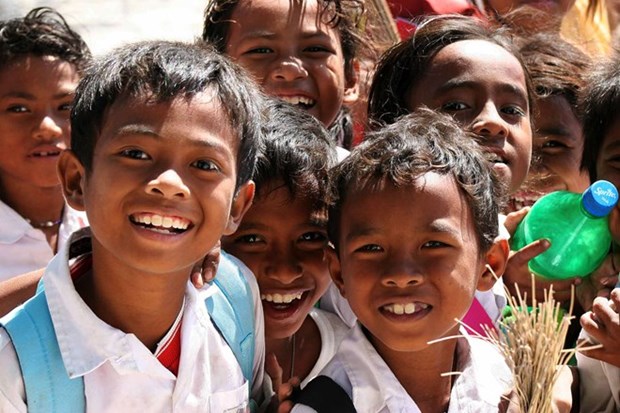Indonesia worried about radicalisation of children
Indonesia is reportedly facing a growing threat of children being radicalised – either from exposure to extremist views online or from bad influence from adults.
 Indonesian children (Photo: Peek Holidays)
Indonesian children (Photo: Peek Holidays)Hanoi (VNA) – Indonesia is reportedly facing a growing threat of children being radicalised – either from exposure to extremist views online or from bad influence from adults.
The country’s Social Affairs Ministry recently released 161 people who had completed the government's rehabilitation and deradicalisation programme. Almost half of them were children.
The ministry's social rehabilitation director Nahar said the children had been exposed to extremist ideologies through their parents, who were already linked to radical groups, particularly the Islamic State (IS) organisation in Iraq and Syria.
The National Police and the National Counter-terrorism Agency (BNPT) have been closely monitoring all people, including children, who have shown an interest in going to Syria.
The BNPT also recently signed an agreement with the Indonesian Child Protection Commission on rehabilitating children who had been exposed to radicalism.
More are expected to join the programme in the near future, Nahar said.
[Indonesia police discover IS propaganda leaflets targeting children]
Last year’s survey, which involved 1,520 respondents from across the country, revealed that 7.7 percent of Indonesian Muslims, about 11.5 million people, were prone to radicalism as they conceded they were willing to carry out extremist actions when needed.
The survey, conducted by the Wahid Institute in collaboration with the Indonesia Survey Agency, also found that young people were more susceptible to being radicalised.
On June 26, a spokesperson of Indonesian police said they found hundreds of books containing IS propaganda targeting children at the home of a suspect arrested in connection with the stabbing death of an officer. The arrested man spent six months in Syria in 2013.
There is concerned about a rise of militancy in Indonesia, which has the world's biggest Muslim population. IS sympathisers have carried out a series of mostly low-level attacks over the past few years, and there are fears about the return of hundreds of Indonesians who have gone to Syria to support the IS.-VNA













